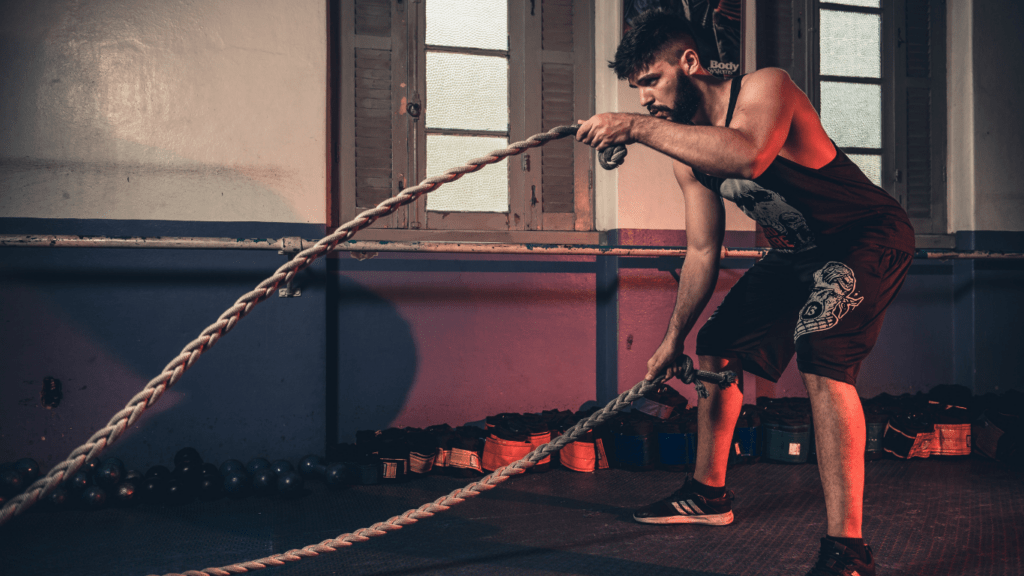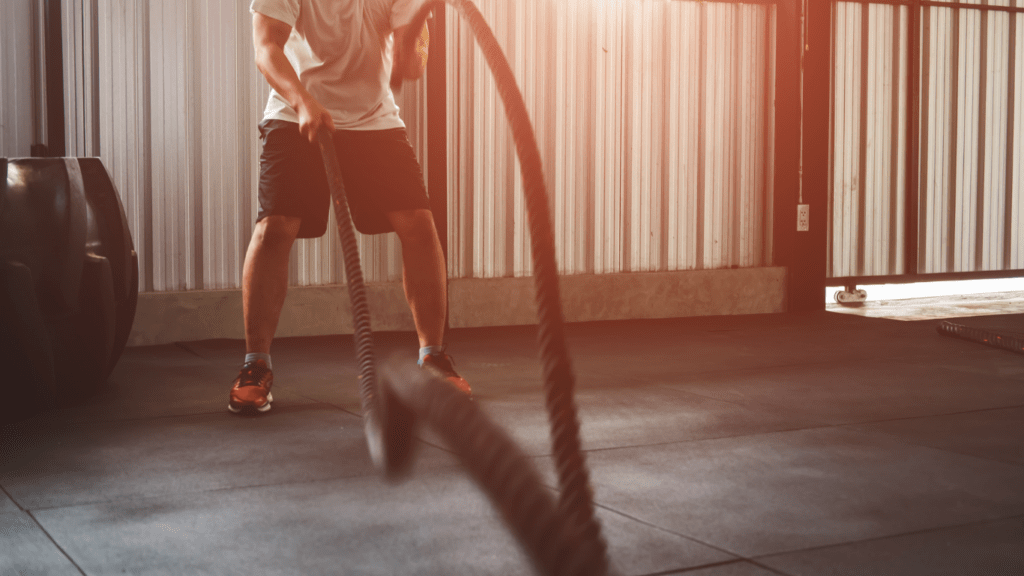In today’s fast-paced world, the ability to perform under pressure is more crucial than ever. I’ve seen firsthand how mental toughness can be the game-changer that separates the good from the great. Whether you’re an athlete, a business professional, or simply navigating life’s challenges, mastering your mindset can unlock your peak performance.
Mental toughness training isn’t just about grit; it’s about developing resilience, focus, and a positive attitude in the face of adversity. By harnessing these skills, you can tackle obstacles head-on and thrive even when the stakes are high. Join me as we explore effective strategies to cultivate mental toughness and elevate your performance to new heights.
Overview of Mental Toughness Training
Mental toughness training focuses on developing resilience, focus, and a positive mindset. These components are critical for achieving peak performance under pressure. Athletes and business professionals use this training to navigate challenges effectively.
- Resilience: Resilience involves bouncing back from setbacks. I prioritize exercises that strengthen this quality, such as visualization techniques and learning from past failures. Studies show that resilient individuals adapt better to stress.
- Focus: Maintaining focus helps individuals stay on track amidst distractions. I employ mindfulness practices, like meditation, to enhance concentration. Research indicates that improved focus correlates with higher success rates.
- Positive Attitude: A positive attitude influences performance significantly. I practice gratitude and self-affirmation to cultivate this mindset. Evidence suggests that positivity leads to greater motivation and effective problem-solving.
- Goal Setting: Establishing clear, achievable goals drives motivation. I use SMART (Specific, Measurable, Achievable, Relevant, Time-bound) criteria to set my goals. This approach keeps my training structured and results-oriented.
- Stress Management: Learning to manage stress is vital for maintaining performance levels. Techniques like deep breathing and progressive muscle relaxation help regulate stress responses. Research supports that effective stress management improves cognitive function and performance.
These training components foster mental toughness. By integrating them into daily routines, I can unlock my peak performance and thrive under pressure.
Importance of Mental Toughness
Mental toughness plays a critical role in enhancing overall performance, particularly in high-pressure environments. This quality not only aids in achieving goals but also fosters resilience during challenging situations.
Benefits for Performance
- Enhanced Focus: Mental toughness improves concentration, allowing me to tune out distractions. In high-stakes situations, maintaining focus contributes to better decision-making.
- Increased Resilience: Resilience enables me to bounce back from setbacks quickly. When faced with failure, mental toughness encourages learning from experiences rather than dwelling on negativity.
- Greater Motivation: A strong mindset boosts inner drive, pushing me to strive for excellence even when faced with adversity. This motivation leads to higher levels of achievement in both personal and professional pursuits.
- Improved Goal Attainment: Setting clear, actionable goals enhances performance. By applying SMART criteria (Specific, Measurable, Achievable, Relevant, Time-bound), I ensure goals are realistic and attainable, which reinforces commitment.
Impact on Stress Management
- Effective Coping Strategies: Mental toughness equips me with various coping mechanisms to manage stress. Techniques such as deep breathing and visualization reduce anxiety, ensuring I remain calm under pressure.
- Fostering Positivity: A positive attitude derived from mental toughness helps me reframe challenges as opportunities. This shift in perspective reduces stress levels and enhances overall well-being.
- Adaptability to Change: Mental toughness allows me to adapt to new circumstances quickly. Embracing change leads to decreased stress and improved performance in dynamic environments.
- Mindfulness Practices: Engaging in mindfulness through meditation improves my awareness of stress triggers. This awareness helps me develop proactive strategies to handle pressure effectively.
Techniques for Developing Mental Toughness
Developing mental toughness involves various techniques that enhance resilience, focus, and a positive mindset. Effectively applying these methods fosters improved performance under pressure.
Visualization Strategies
Visualization techniques become essential tools for mental toughness training. I use imagery to create vivid mental pictures of success, which boosts confidence. Engaging in regular mental rehearsals allows me to prepare for potential challenges.
For example, I often visualize specific scenarios I encounter, such as competing in sports events or presenting at work. This practice not only familiarizes me with the situation but also reduces anxiety. Research supports that athletes who engage in visualization experience enhanced performance due to increased focus and confidence.
Mindfulness and Focus
Mindfulness practices significantly improve focus and mental clarity. I incorporate meditation sessions into my routine, which help center my thoughts and reduce distractions. Focusing on breath during these moments fosters calmness, enabling me to manage stress effectively.
For instance, dedicated mindfulness exercises can last just a few minutes but contribute to better decision-making during high-pressure situations. Engaging in regular mindfulness training leads to heightened self-awareness, resulting in improved emotional regulation and greater adaptability when facing challenges.
Application of Mental Toughness in Sports
Mental toughness plays a pivotal role in sports performance, impacting athletes’ ability to excel under pressure. Many successful athletes demonstrate how mastering mental toughness transforms their game and leads to outstanding achievements.
Case Studies of Successful Athletes
- Michael Jordan: Michael Jordan epitomizes mental toughness in basketball. His resilience and focus helped him win six NBA championships. During high-pressure games, he maintained composure, enabling him to make crucial decisions and execute game-winning shots, even with opponents applying intense pressure.
- Serena Williams: Serena Williams showcases mental toughness through her competitive spirit. In challenging matches, she employs visualization strategies and positive self-talk. This mindset allows her to overcome setbacks and remain determined, contributing to her 23 Grand Slam titles.
- Tom Brady: Tom Brady’s career in the NFL highlights the importance of mental resilience. Known for his ability to remain calm in stressful situations, he often leads comebacks in critical games. His commitment to training mental toughness through mindfulness and goal setting has been integral to his success.
Training Regimens Incorporating Mental Toughness
- Goal Setting: Incorporating the SMART criteria (Specific, Measurable, Achievable, Relevant, Time-bound) into training helps athletes define clear objectives. This clarity enhances motivation and persistence, driving athletes to hone their skills.
- Visualization Techniques: Utilizing visualization exercises enables athletes to mentally rehearse successful performances. By vividly imagining their success, athletes build confidence and decrease anxiety, essential to peak performance in high-stakes scenarios.
- Mindfulness Practices: Embracing mindfulness through meditation aids athletes in achieving mental clarity and focus. Regular practice allows athletes to manage distractions and maintain composure, particularly during tense moments in competitions.
- Resilience Training: Engaging in activities that simulate high-pressure situations fosters resilience. Athletes can practice mentally reframing setbacks as learning experiences, which cultivates a stronger mindset capable of handling adversity.
- Stress Management: Incorporating techniques like deep breathing and progressive muscle relaxation during training prepares athletes for real-game stressors. Assessing and managing stress effectively boosts performance levels under pressure.
By integrating these strategies into regular training, athletes strengthen their mental toughness, unlocking their peak performance potential in competitive environments.
Mental Toughness in Everyday Life
Mental toughness significantly impacts everyday situations, enabling me to face challenges with resilience and focus. I often apply mental toughness strategies to navigate stress in both personal and professional contexts.
- Resilience: Resilience manifests in my ability to bounce back from setbacks quickly. When facing obstacles—be it in work projects or personal goals—I practice reframing failures as learning opportunities. For instance, I analyze what went wrong and identify ways to improve.
- Focus: Sustained focus improves my productivity. By using mindfulness techniques, I minimize distractions and enhance my attention span. I dedicate time each day to meditation, honing my ability to concentrate during high-pressure tasks.
- Positive Attitude: A positive mindset shapes my reactions to stress. Engaging in daily gratitude exercises boosts my motivation and reinforces my capacity to view challenges as growth opportunities. Recognizing small achievements each day motivates me to pursue larger goals.
- Goal Setting: Clear goal setting supports my everyday performance. I follow the SMART criteria—Specific, Measurable, Achievable, Relevant, Time-bound—keeping my objectives realistic and actionable. This clarity enables me to stay committed and track progress effectively.
- Stress Management: Effective stress management techniques are crucial. I incorporate deep breathing exercises to maintain calm during demanding situations, fostering a sense of control and reducing anxiety.
Integrating these mental toughness strategies into my daily routines helps me navigate life’s challenges, enabling me to unlock my peak performance consistently.




